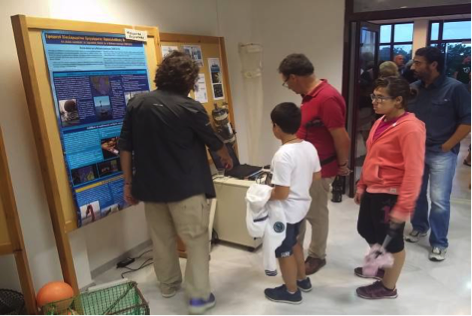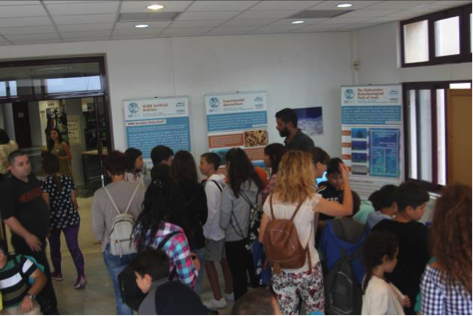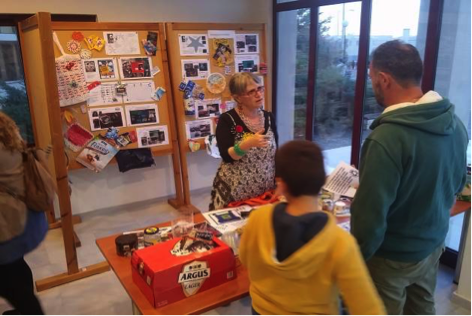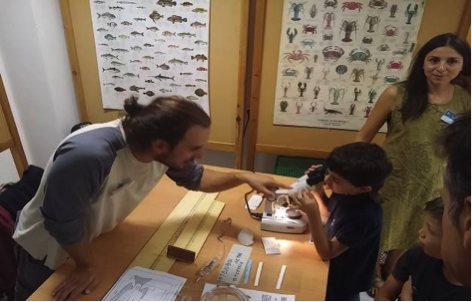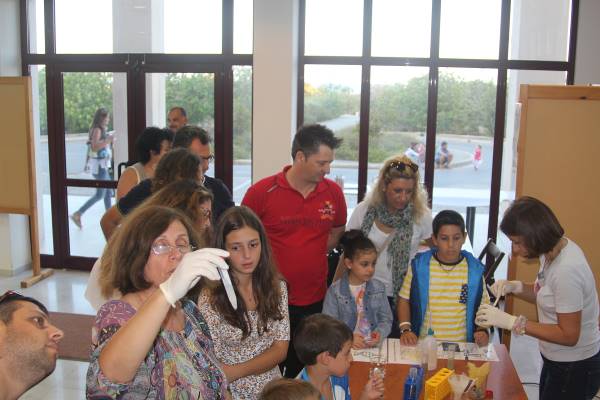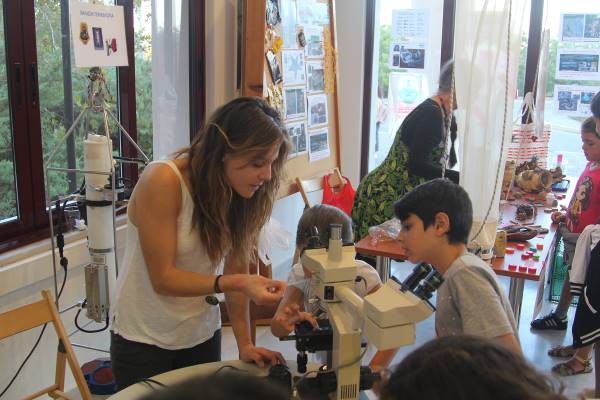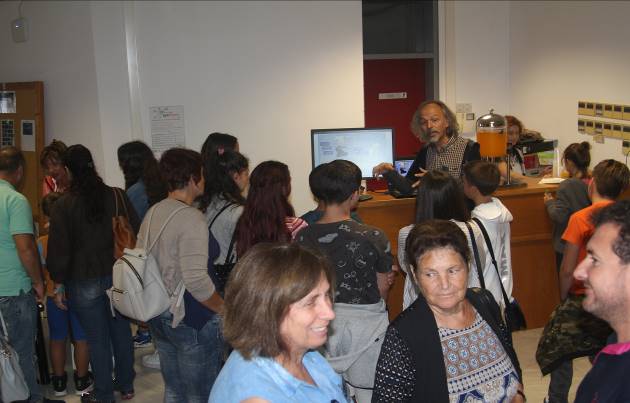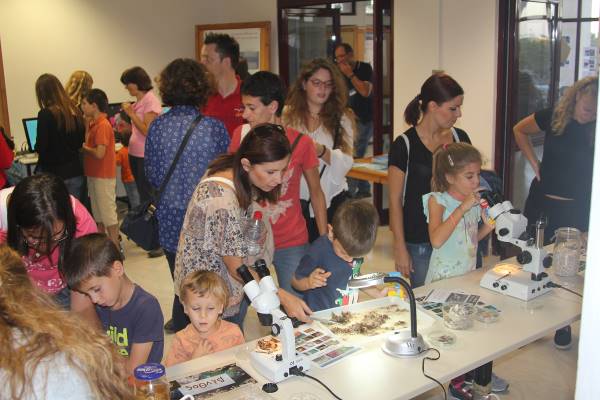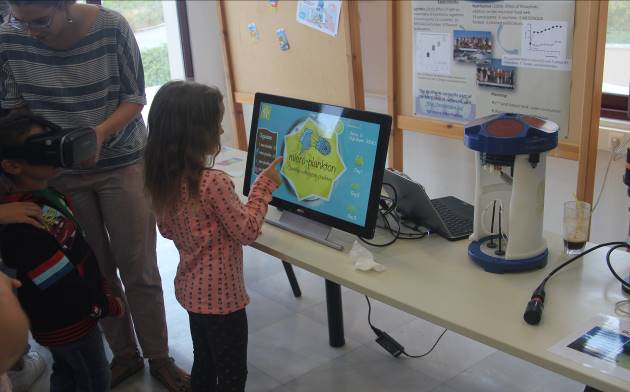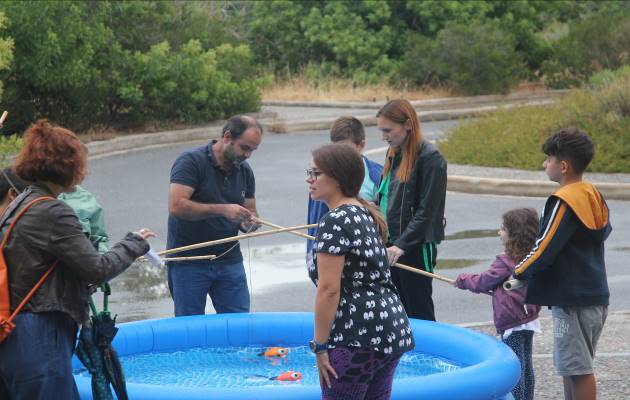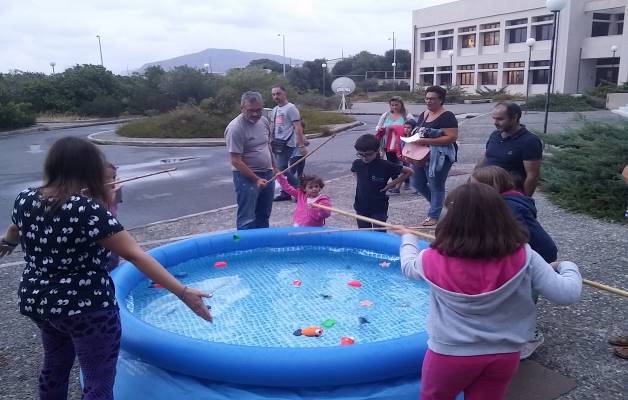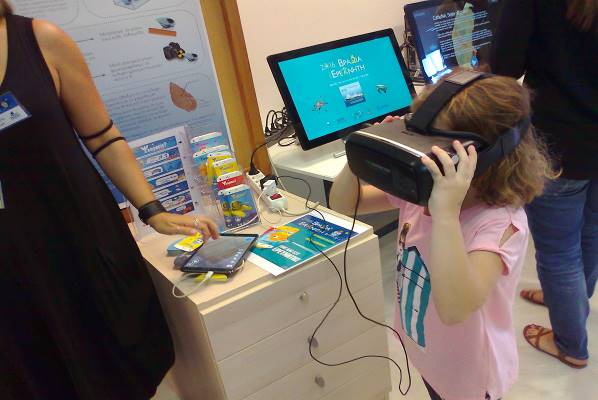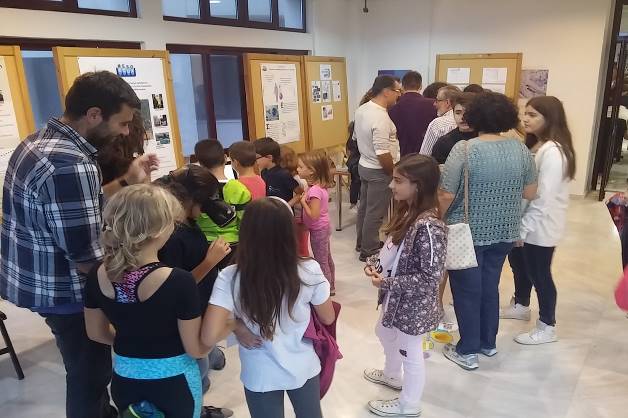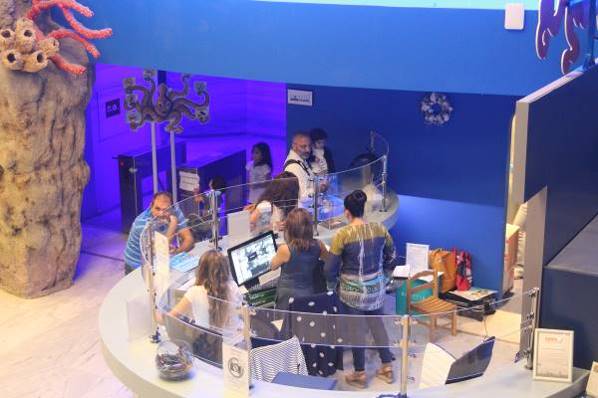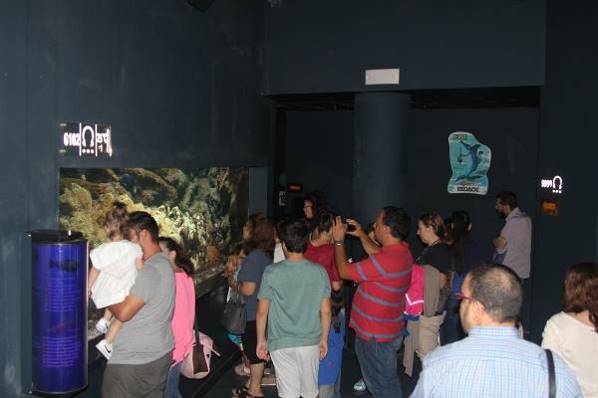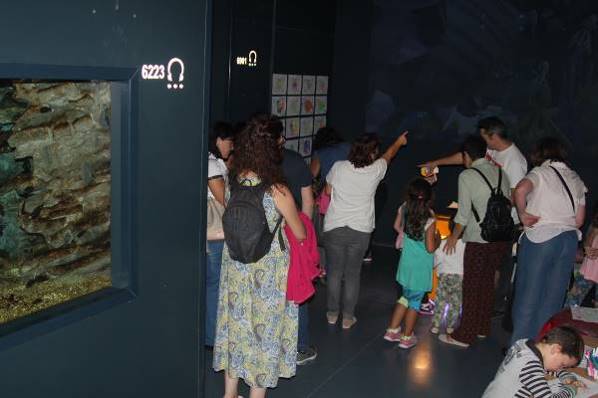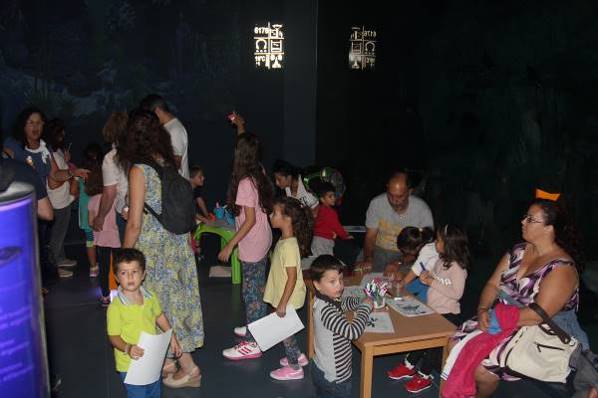Actions and tasks by hcmr
Demonstrations and discussions with students:
- Multi-sensor demonstration for measurement of physicochemical parameters (salinity / conductivity, temperature) as well as application of the multi-sensor in water samples.
- Discussion with students about water quality. Demonstration of exercise / action according to the instructions of the ERASMUS + program with the acronym MedEDUC coordinated by HCMR for Greece. The action that will be presented concerns transport and mobility of pollutants related to the ecosystem (lakes, rivers, aquifer, coastal zone, lagoon, open sea).
Discussion with students about the results of the Interaction with students and acquaintance with:
The “POSEIDON” system – a system that predicts the weather, the state of the sea (e.g. water quality, ripples) and its interaction with the atmosphere.
The new “GeoMAREA” detector that measures underwater radioactivity both in geological applications (emissions of radioactive gases such as chemically inert radon) and in possible releases of radioactive substances from nuclear power plants (in the case of nuclear accident).
Interactive Games:
Marine and marine ecosystem puzzle games. The young students who will watch the action will participate in experiential recreational puzzle games aimed at discovering marine ecosystems.
What is the CLIMPACT National Program
Science at the Service of the State and Society for Tackling Climate Change
Discussion with students and an interactive educational approach to understanding the effects of climate change.
Unfortunately, the worst predictions for the intensity of the phenomenon of climate change and its consequences are confirmed daily. A recent study by the International Meteorological Organization and published by the United Nations on March 10, 2020 shows that climate change has a major impact on all areas of the natural environment, as well as the health and well-being of the world’s population.
The study presents data on rising ground and ocean temperatures, accelerating sea level rise and melting ice – but also on the effects on socio-economic development, human health, migration, food security and terrestrial and marine ecosystems.
Scientists, who have been sounding the alarm about the dramatic effects of climate change for decades, are now being called upon to develop climate monitoring systems to study the imapct on society and the economy, and provide early forecasting tools for the intense natural phenomena with the aim of preventing risks as well as to develop a strategy for dealing with natural and man-made disasters.
The Hellenic Center for Marine Research (HCMR) is a governmental research organization of the Ministry of Development under the supervision of the General Secretariat for Research and Innovation and consists of three Institutes: Oceanography, Marine Biology, Biotechnology and Aquaculture, Marine Biological Resources and Inland Waters.
The purpose of HCMR is to conduct scientific and technological research, experimental development and demonstration, dissemination and application of research results, especially in the fields of study and protection of the hydrosphere, its interface with the atmosphere, the coast and the seabed, its organisms, the physical, chemical, biological and geological conditions that prevail and govern the above systems. In addition to purely scientific research, HCMR plays an essential role in supporting policies and strategies for the conservation and sustainable management of ecosystems. Researchers of the Center are active members of committees at National and International level for the formulation of policies in both research and the formulation of Directives related to the environment and its protection.
At the national level, HCMR is the main entity to implement National Strategy projects, such as those related to the Framework Directive for Water and Marine Strategy as well as for the Compilation of Fisheries Data, and is an advisor to the State on oil pollution from marine activities and accidents, supporting fisheries policy, water resources management, offshore renewable energy sources and fossil fuels in the context of sustainable development (Blue Growth).
He received his PhD in Experimental Nuclear Physics from the National Technical University of Athens, in collaboration with the Institute of Reference Materials and Measurements (IRMM-JRC), in Belgium. Since 2000 he has been working at HCMR on issues of marine radioactivity and one of his technological achievements is the development and implementation of autonomous underwater radioactivity sensors such as the KATERINA and GeoMAREA systems.
He is also responsible for the Marine Environment Radioactivity Laboratory of HCMR, which joined the "XENOKRATIS" network of the Greek Atomic Energy Committee and the "ALMERA" network of the International Atomic Energy Organization. He has over 60 publications in peer-reviewed journals, 28 of which focus on underwater gamma-ray spectroscopy through the field method. His papers are over 700. He has participated in 32 proposals (12 of which he is / was responsible for) and has presented work at over 40 international conferences / workshops.
He has been a guest speaker, reviewer in international scientific journals and evaluation of proposals. He was also awarded as a valuable judge in an ELSEVIER magazine. Finally, he was one of the first founding members of the International Atomic Energy Agency's in-situ Working Group. Argyro Andriopoulou studied Ichthyology at the School of Fisheries and Aquaculture, Technical School of Messolongi, then Biology at the University of Athens, and holds an MSc in Environmental Education and Education for the Sustainable Development of the University. Since 2000, she has been a Research Assistant at the Institute of Marine Biological Resources & Water, HCMR. She is an active member of the HCMR Training Unit (EU) since 2006 and since 2015 she is the Director of the unit in Athens. Her research interests focus on the identification and classification of freshwater benthic macroinvertebrates, the assessment of the ecological status of Greek rivers, the implementation of the European Water Framework Directive (2000/60 / EU) in Greek freshwater ecosystems and the classification of surface inland waters. As head of education she has planned and organized various programs on marine / aquatic environment issues, focused on Greek primary and secondary schools in collaboration with governmental and non-governmental organizations. He has undertaken and participated in research and educational programs, with several of announcements in Greek and international journals. Among the activities he has undertaken are the supervision of internships for graduates and students, lectures on topics from the aquatic environment, biodiversity, alien species, etc., the organization of scientific missions for sampling, the organization of workshops and many more. From 2010 to April 2019 he works as a postdoctoral fellow of the Hellenic Center for Marine Research having received a scholarship (2010-2011) from the State Scholarship Foundation under the program "Postdoctoral research in Greece, Geography - Geology - Oceanography". His work concerns 35 publications in international journals with a total of 306 citations. Since 2013 he participates in the communication activities of science of HCMR participating in numerous scientific festivals, workshops and international exhibitions of technology and innovation. Since 2003 he is a member of the Hellenic Society of Nuclear Physics. He is an experienced diver and since 2013 he has received the diplomas PADI-Divemaster and IANTD-Advanced Nitrox Diver, among others. In May 2019 he was elected as a Research Fellow at the Institute of Oceanography of ELKETHE.


